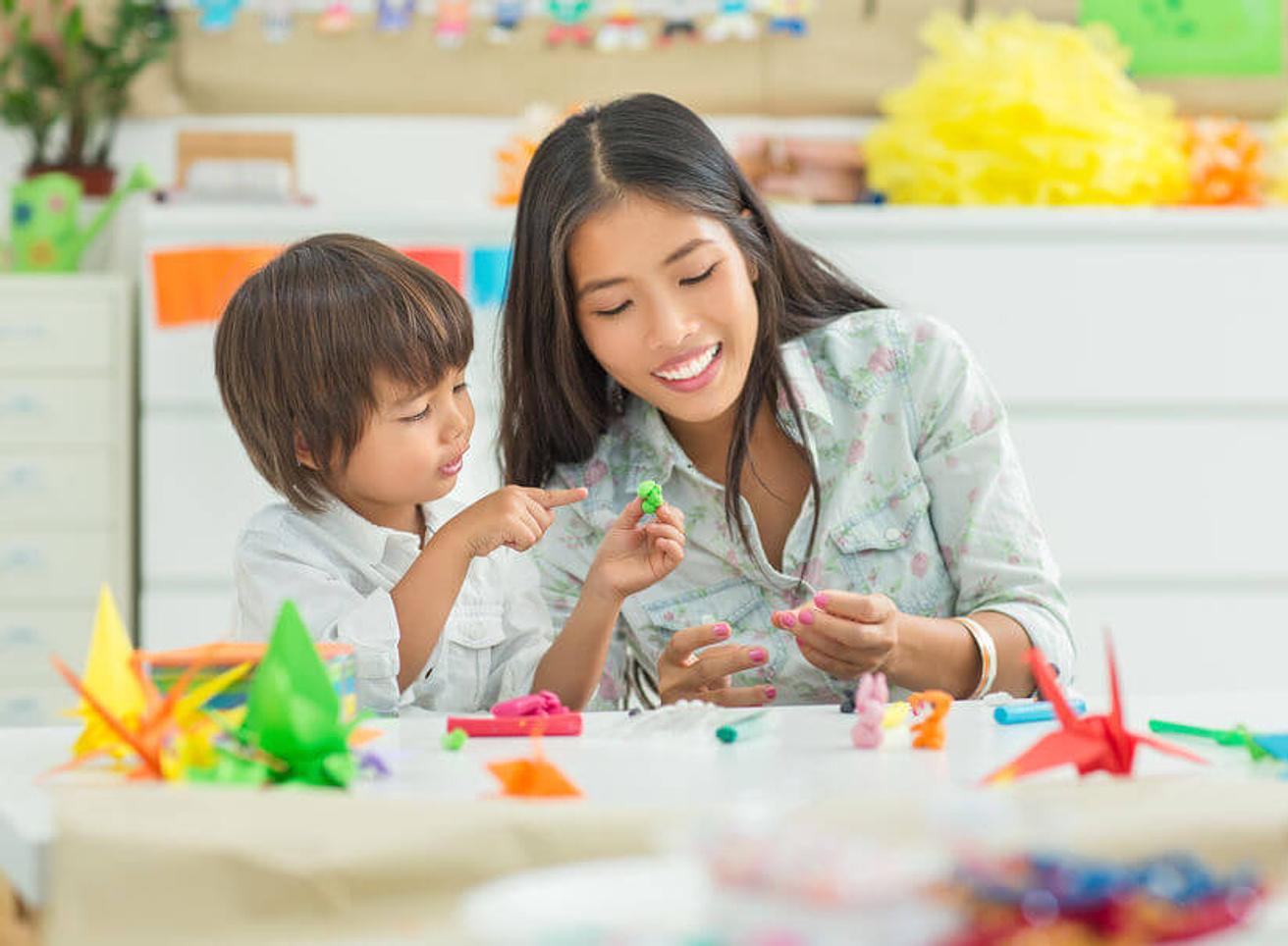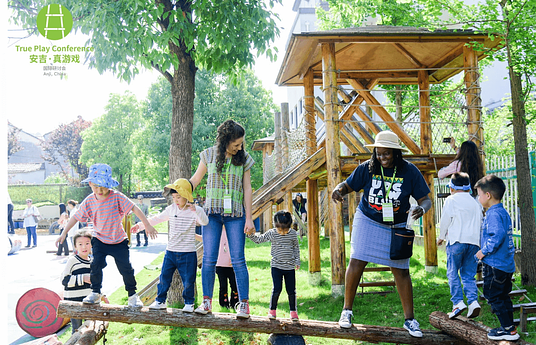Play is where children are given the freedom to follow their own natural instincts and independently lead their own development. Because it happens in such an organic way, it is easy to dismiss play-time as less important than more structured activities that we think will aid a child’s education. However, through play children are developing their brains all the time and in a way that naturally captures their attention and focus.
‘Play is a critical tool for children’s development not just in the early years but right through their childhood,’ agrees Marcus Veerman, CEO and Founder at Playground Ideas.
Playground Ideas advocates for the importance of play in childhood development and helps communities to build effective playful environments that stimulate children’s learning and development. The importance of play in development is an idea that is starting to spread, in part thanks to the continuing support from organizations such as Playground Ideas. Cambridge University has even set up a department to research the role of play in development and learning.
However, though many studies have already proven the importance of play in childhood development, our education systems continue to become more and more results-based. Veerman argues this is something to be extremely wary of, explaining, ‘The removal of play in children’s lives is happening at an alarming rate and is something that we should all be very concerned about, as I think it’s one of the key drivers of the rising levels of depression and anxiety that we see in childhood.’
This erasure of play in education and early childhood is a relatively new concept that has only been happening in the last fifty years, Veerman told us. He suggests that this can, unfortunately, be to do with ‘overly anxious parents, teachers and society’ who think they can ‘enhance or accelerate a child’s learning and development by removing play and replacing it with their own agenda for what children should learn.’
It’s understandable why play is being neglected in our education systems. As a form of learning it is free-flowing and independent, requiring us to let go and trust that the children are learning what they need to be. When schools are under pressure to produce results, and job markets are competitive and unstable, we all want to make sure we’re doing the best for children, that our schools are performing well and that we’re setting up children to succeed later in life.
However, through this anxiety we can end up harming children more than we may first realize. ‘When you push a child too hard, particularly in the very early years, it can severely backfire later in life with children losing the love of learning and suffering from mental health issues,’ explains Veerman. ‘Children’s brains develop at different rates. Allowing children the time and space to play in open-ended environments allows them to explore the exact thing that their brain is needing to develop at that time, and so it’s a very efficient and effective way of developing the brain and the body, whilst also establishing those crucial executive functioning skills like social skills, innovation, creativity and problem-solving.’
Across the world, we’re facing the same problem of a lack of high-quality playful preschool education, though the obstacles facing play-based education differ depending on a country’s circumstance, as Veerman explains, ‘It would be easy to say that western developed nations prioritize play more for their children than those in the developing world, but in the developed world there is also strong competing factors for children to be overscheduled and locked into adult directed activities almost all day.’

In contrast, developing nations have been able to recognize the importance of play, but the implementation of it tends to fall short. ‘Many developing world nations now have policies to implement play based early childhood education in their kindergartens which is fantastic,’ says Veerman, ‘but what is seen on the ground is often poorly executed and often contains the same rote-learning that you see in schools.’
This doesn’t mean that we should give up on trying to create playful learning environments for preschoolers, as Veerman adds, ‘We have decades of longitudinal studies from multiple different countries that shows that teacher-directed, didactic learning achieves small gains in the short-term, but those gains tend to fade over the long term; whereas open ended, play based learning with caring adults has solid long-term effects that don’t fade. We all need to be working on and advocating for play based learning in preschool and primary environments every day.’
For Veerman, the environments we create hold huge importance on how effective a child’s play is. ‘Unfortunately, the swing-slide-seesaw model of playgrounds has now pervaded the entire planet, but a playground can be so much more than just a physical space to burn off steam,’ he explains. ‘Sure, children love to play in physical ways and use their body, but in terms of their development there are so many other types of play that good design can encourage and that will support other parts of their development such as socialisation, creativity, imagination and role-play. Design in playgrounds is crucial because the space and resources children have at their fingertips will define (at least partly) the ways that children will use the space, and therefore the things they will learn.’
Playground Ideas is helping to make this possible by providing low-cost solutions for communities around the world. Through supplying downloadable ideas, plans and manuals free of charge, Playground Ideas helps to make playtime for children in any part of the world more accessible. The playgrounds are built using local materials and, through the innovative designs provided by Playground Ideas, children have multiple options to explore, play and learn, supporting their development in a natural, playful way.

The organization is taking this one step further to make it even easier to install effective play solutions. They have developed Nüdel Kart, a deconstructible mobile cart that can be reconfigured by children and is specially designed to maximize children’s learning and get them moving. ‘Nudel Kart is a solution for people to roll out super high-quality stimulating spaces for children in any environment,’ explains Veerman, ‘whether it be an Australian or Finnish primary school, or a refugee camp in Uganda, Bangladesh or Lebanon. Over the last six months we have trialled the Nudel Kart in multiple different scenarios and have seen incredible engagement from children in a package that schools, NGO’s, hospitals, kindergartens and so many other places could implement.’
It’s uncomfortable to give up control over a child’s learning, particularly in these uncertain times when it’s difficult to predict what we need to prepare children for. However, this shouldn’t cause education systems to erase play from the curriculum, in fact, the self-guided learning that play provides can prepare children more readily for a future where they will need a broad set of skills to thrive. Through providing well-designed, innovative playful environments, we can help children to develop the core skills they need to succeed throughout their educational career and beyond. That is why we should all be advocating for play in preschools and elsewhere, as Playground Ideas does.
Learn more about Playground Ideas by checking out their Innovation Page.





